I'm currently training my model using the HuggingFace Trainer class:
from transformers import Trainer, TrainingArguments
args = TrainingArguments(
output_dir="codeparrot-ds",
per_device_train_batch_size=32,
per_device_eval_batch_size=32,
evaluation_strategy="steps",
eval_steps=5_000,
logging_steps=5_000,
gradient_accumulation_steps=8,
num_train_epochs=1,
weight_decay=0.1,
warmup_steps=1_000,
lr_scheduler_type="cosine",
learning_rate=5e-4,
save_steps=5_000,
fp16=True,
push_to_hub=True,
)
trainer = Trainer(
model=model,
tokenizer=tokenizer,
args=args,
data_collator=data_collator,
train_dataset=tokenized_datasets["train"],
eval_dataset=tokenized_datasets["valid"],
)
This prints the loss during training, but I can't figure out how to save it so that I can plot it later. Note that I need both the training and validation losses during training.
